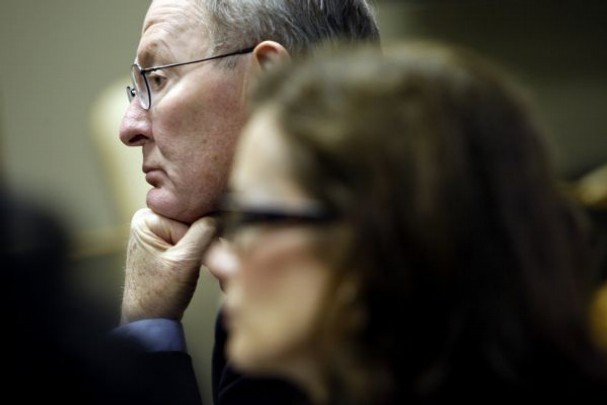Connecticut state senators just voted to increase the state gas tax by three cents. The New Hampshire House Speaker has proposed cutting theirs by five cents – but only for two months, to help drivers bear the pain of high gas prices. In Georgia, the gas tax jumps every time gas prices go up by 25 cents. And at least one U.S. Senator is suggesting that more states start taking transportation funding into their own hands.

After a meeting with mayors in his home state of Tennessee, where he listened as area mayors expressed concerns about the federal budget, Republican Senator Lamar Alexander said, "State and local governments will have to decide whether to have an increase in the gasoline tax." He delivered the bitter news to the mayors that they may be getting even less money from the federal government over the next few years.
For many Republicans, that’s just as it should be. They think the federal bureaucracy is too big and more government functions should be left to the states. Alexander said that when he was governor in the eighties, he was able to fund and complete several state road projects without federal dollars.
But the mayors he spoke to were concerned. According to the Commercial Appeal, they explained that most transportation projects get 80 percent of their funding from the feds with just a 20 percent local match. They count on those federal dollars.
Alexander didn’t specify how much the state should raise the gas tax, but he indicated that tourists and truckers would “pay for a big share of it,” perhaps as a way to help local politicians sell the idea of a higher state gas tax to constituents.
Tennessee has one of the lowest gas tax rates in the country, taking into consideration the fact that sales tax is exempted on gasoline. The state gas tax is 15 cents a gallon (on top of the federal levy of 18.4 cents) but drivers essentially get back two-thirds of that cost (10 cents) since gas is exempt from sales tax. Tennessee dedicates its entire gas tax to highway-building.
Mayor Stan Joyner of Collierville, a Memphis suburb, told the Commercial Appeal he didn’t see a state gas tax hike as a solution to the funding problem. “Jiminy Christmas,” he said. “Gas is high enough and is taxed enough… If there are cuts or if they [federal officials] keep more, it puts a greater burden on us. It means we have an aging infrastructure with no funds to do anything about it."
Donna Cooper, former secretary for policy under Pennsylvania Governor Ed Rendell, says state gas tax increases may be warranted in states that have not been able to meet local road repair needs. "But they should not be substitutes for the continued federal role," she said, "in collecting gas taxes sufficient to ensure that our interstate highway system and transit systems are in good repair and have sufficient capacity to meet America’s transportation needs."





